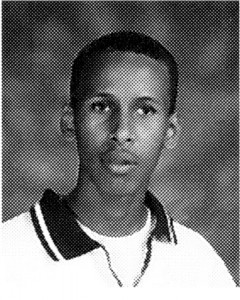
ST. PAUL, Minn. — Defense attorneys for a man accused of helping other young Somalis in Minnesota travel to their war-torn homeland to fight with a terrorist group have a week to verify an FBI report about a suicide bomber that’s being used to support charges against their client, a judge ruled Wednesday.
Omer Abdi Mohamed, 26, is scheduled to stand trial July 19 on federal terrorism charges, but his attorneys asked for a delay from Chief U.S. District Judge Michael Davis. They cited the vast amounts of evidence they need to review, including bank and travel documents, videos, phone records and an FBI lab report about a 2008 suicide bombing in Somalia.
Davis didn’t rule during Wednesday’s hearing whether to postpone the trial, saying it would take a “serious” issue to do so. He set another hearing for next Wednesday and gave defense attorneys until then to verify the FBI’s reports. The judge denied defense requests to dismiss some of the charges and remove Mohamed’s electronic monitoring bracelet.
Mohamed is among 18 people charged in connection with the travels of more than 20 Somali men who left Minnesota in waves to possibly take up arms with al-Shabab, which the U.S. government considers a terrorist group associated with al-Qaida.
Mohamed didn’t travel to Somalia, but authorities say he helped others who did. Prosecutors allege that he began to mobilize men to travel to Somalia to fight against Ethiopians in the fall of 2007. He’s accused of planning and facilitating the travels, and of holding meetings at mosques, restaurants, private homes and other locations in and around Minneapolis.
Mohamed has pleaded not guilty.
One of the men who left in late 2007 was Shirwa Ahmed, the first known American suicide bomber in Somalia. Ahmed blew himself up in October 2008, in the northern breakaway republic of Somaliland as part of coordinated attacks that killed 21 people.
While the government doesn’t directly connect Mohamed to Ahmed in the court documents, the indictment lists Ahmed’s travel and death as an overt act that supports the charges against Mohamed.
Mohamed’s attorney, Peter Wold, said he only recently received FBI lab reports on Ahmed’s death. As part of preparing a thorough defense, Wold argued, he needs to have the evidence reviewed by his own expert to prove the bomber was indeed Ahmed.
Wold also argued that one criminal count — conspiracy to murder, kidnap, maim and injure — should be dismissed. He said it isn’t illegal for someone to go abroad to enlist in a foreign army, noting that the U.S. does not prohibit Israeli-Americans from returning to serve in the Israeli military.
Wold argued Mohamed is being accused of participating in a “mission to go defend his country against the historic enemy, Ethiopia,” and argued his client was being singled out for his race and religion.
Department of Justice Trial Attorney William Narus countered by saying Mohamed never traveled himself and the activities of al-Shabab — including suicide bombings — are not conducted by a government’s military services.
The judge agreed. While the Supreme Court has acknowledged that it is lawful to leave the U.S. to enlist in a foreign army, “the same is not true when a person travels to a foreign country with the purpose of enlisting in an insurgent army to engage in war or other terror related conduct against that country’s recognized government,” Davis said.
Several witnesses are expected to testify during the upcoming trial, including terror experts and possibly the owner of a travel agency who refused to issue tickets to two of the travelers.
Court documents say testimony is expected to show that Mohamed’s co-conspirators were together at various points in Somalia.
